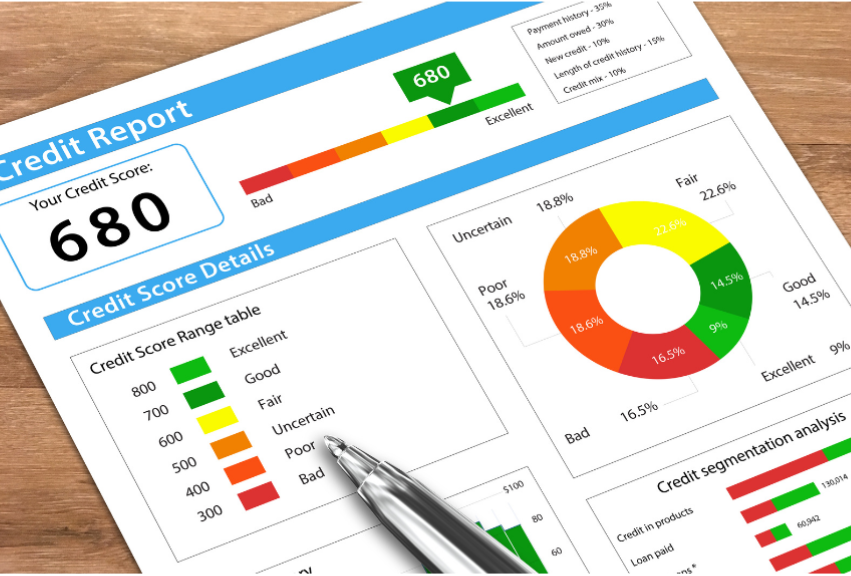
Removing Errors from Your Credit Report
Your credit report should be an accurate reflection of your credit and debt accounts. It should show how well (or not) you paid your accounts, your outstanding balances, and the accurate history of any accounts you’ve had but have since closed.
Here’s the bad news.
Sometimes credit reports are wrong. Whether it’s a human error at the credit bureau or the creditor themselves reported the information incorrectly, an error could hurt your credit score and damage your chances of getting future credit.
If you find errors on your credit report, it’s important that you have them fixed. Here’s what you must know.
Reasons to Check your Credit Report
It’s important to check your credit report annually. Make it a part of your ‘spring cleaning’ or a New Year’s resolution if you must, but it’s a good idea to check your credit at least once a year to make sure things are accurate.
It might feel like a heavy item on your ‘to-do’ list, but there are some important reasons why you should check your credit report:
- Incorrect information reported on your credit report could hurt your credit score and make it hard to get future loans
- You might have to pay higher interest rates on the loans you do get
- Excessive errors could mean someone stole or is trying to steal your identity
Your credit report should be an accurate reflection of your use of your credit and debt. Inaccurate information isn’t the same as ‘negative information’ though. Don’t confuse the two.
For example, if you missed a payment by 30 days, it will show up as a late payment on your credit report. That’s not a mistake if you made the payment late and you can’t dispute it. What you can do, though, is bring your payments current and try to avoid late payments in the future.
It’s not hard to check your credit. You just need to get in the habit of it and know how to dispute incorrect information quickly to repair your credit as quickly as possible.
Common Errors Reported on Credit Reports
Each consumer finds different types of errors on their credit report, but here are the most commonly reported errors:
- Misspelled name (this can often mean someone else’s credit information is on your credit report if you have a common name)
- Incorrect personal identifying information such as your date of birth or address
- Accounts that don’t belong to you
- Incorrect balance information
- Inaccurate payment information
- Negative information that’s beyond the statute of limitations
How to Fix and/or Remove Errors from your Credit Report

Now that you know what to look for on your credit reports when evaluating the information about your credit and debt, here are the steps you must take to dispute, aka fix the errors.
1. Gather information about the issue
Before you contact the credit bureaus about the incorrect information, you’ll need proof of your claim. If it’s your personal identifying information that’s incorrect, providing a copy of your driver’s license or other supporting documentation can prove the error.
If the error has to do with a specific tradeline, provide receipts, canceled checks, or credit card statements to prove what is reporting incorrectly. For example, if the credit bureau reported you made a payment 30 days late, but you have proof that you made it on time, gather the proof to include with your dispute letter.
2. Try talking to your lender first
Before you go straight to the credit bureau reporting the incorrect information, try the lender first. You can often get answers faster and with less paperwork required when you go straight to the source.
If you can resolve the issue with your lender directly, they may contact the credit bureau to change the information and you’re all set. If not, you may have to do some more leg work.
3. Contact the credit bureaus
Figure out which credit bureau reported the information inaccurately and write them a dispute letter. You can also use their online forms if you need some guidance. Make sure you contact the right bureau whether it’s TransUnion or Equifax.
It’s not a bad idea to follow up with the credit bureaus yourself even if you had luck with the creditor. Rather than relying on the creditor passing along the correct information, you can follow up yourself to ensure it’s done right.
Keep in mind, the credit bureaus have 30 days to respond to your request. This gives them time to investigate the issue and decide if the information is accurate or not.
What to do if you Aren’t Happy with the Outcome
Sometimes disputes don’t go our way, even if we have the proof. If you don’t agree with how the credit bureau handled the situation, you can request a consumer statement be placed on your credit report.
You’ll need to keep it short and sweet, but it’s your chance to tell future lenders the real story or at least your side of the story so they can decide for themselves if you are a good risk. It might or might not make a difference, but if the error truly is an error, it’s worth mentioning.
Final Thoughts

You have the right to fair and accurate credit information reported on your credit report. If you don’t check your credit report regularly, though, you won’t know when there are errors on it. The key is to check it consistently so you can dispute the errors as quickly as possible.
If your credit report isn’t what you’d hoped it would be or your credit score could use some help, let the credit counsellors at EmpireOne Credit help. We have many options to help consumers improve their credit as much as possible. Whether you’re in over your head in debt, you need to file bankruptcy, thinking of a consumer proposal or you just need help creating a budget, our counsellors are here to help. Contact us today!





